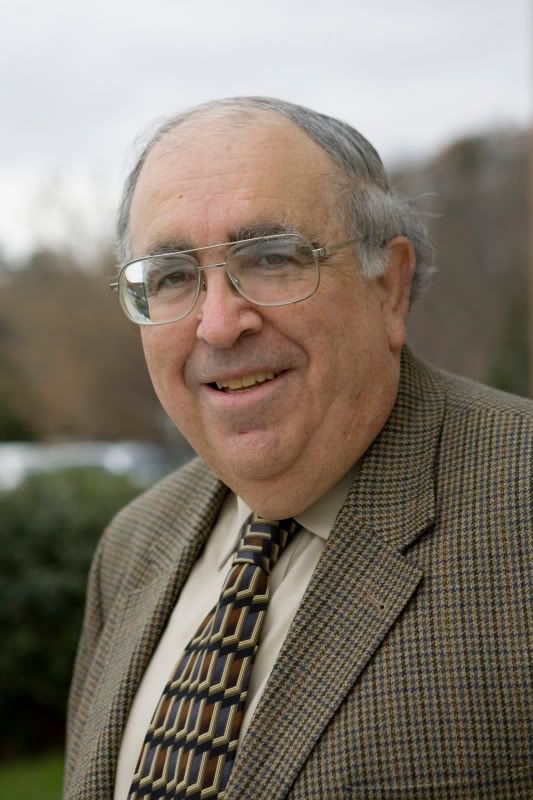Margie Profet grew up with three siblings, the California surfer-girl daughter of aerospace engineers Karen and Bob Profet, Berkeley physics graduates who relocated for a more laid back life in Manhattan Beach.
Bob Profet (left)—who died in 2006 after a long struggle with heart disease—pioneered technical engineering conferences. He was “a wonderful man, who loved Margie in a deep, open-hearted way,” says Don Symons, who knew the family well. Margie’s mother Karen—who did not respond to interview requests—and sister Julie still help operate a confab her father created 15 years ago, the IEEE Aerospace Conference.
Growing up a math wiz who consistently tested three grades higher than her years, Margie considered herself a hopeless misfit, telling People Magazine she felt “like an alien who didn’t belong.” Stories of her eccentricity—considered a common side effect of genius IQ that can also hint of deeper struggles—surfaced repeatedly in media profiles, as in her father’s comment about “off the chart weirdness” and her never-changing attire.
“I am all but certain I never saw Margie in a skirt or slacks, or anything but shorts,” says Don Brown.
Bob Profet (left)—who died in 2006 after a long struggle with heart disease—pioneered technical engineering conferences. He was “a wonderful man, who loved Margie in a deep, open-hearted way,” says Don Symons, who knew the family well. Margie’s mother Karen—who did not respond to interview requests—and sister Julie still help operate a confab her father created 15 years ago, the IEEE Aerospace Conference.
Growing up a math wiz who consistently tested three grades higher than her years, Margie considered herself a hopeless misfit, telling People Magazine she felt “like an alien who didn’t belong.” Stories of her eccentricity—considered a common side effect of genius IQ that can also hint of deeper struggles—surfaced repeatedly in media profiles, as in her father’s comment about “off the chart weirdness” and her never-changing attire.
“I am all but certain I never saw Margie in a skirt or slacks, or anything but shorts,” says Don Brown.
At Harvard, where Profet “discovered I had a brain,” she studied under Mansfield and English professor Paul Cantor, who now teaches at the University of Virginia.
\Even though she took only one class from him 33 years ago, Cantor (right) still remembers the course—Myths of Creation—and his student.
“Very upset” by news of her disappearance, Cantor says Profet was fascinated with “big ideas,” and asked probing, adult questions with a childlike, “almost elfin” curiosity. “We talked about Nietzsche and Heidegger, and I told her that if she wanted to learn philosophy seriously, she should study with Professor Mansfield,” Cantor recalls. “The way her mind worked seemed to show up in her professional life—the ‘maverick’ thing.”
After Harvard, Profet programmed computers in Germany and climbed Mount Kilimanjaro in Africa. Back in California two years later, she enrolled at Berkeley and emulated her parents, graduating in 1985 with a bachelor’s degree in physics while hating every regimented minute of the past three years.
School is the wrong place for people who want to use the energy of their twenties and thirties to ask naive questions, Profet told Scientific American. “You may be using up a time in life that will never come again."
Working odd jobs for low pay, Profet discovered the liberating allure of libraries, where she could think and study in blissful solitude at no charge. At Berkeley’s library, she started researching q
 uestions about unusual problems—like why do allergies make us scratch? And why would a woman who loves coffee run from the aroma of Starbucks after she gets pregnant?
uestions about unusual problems—like why do allergies make us scratch? And why would a woman who loves coffee run from the aroma of Starbucks after she gets pregnant?Bruce Ames (left), who invented a way to test chemical compounds for cancer- or mutation-causing potential, met Profet at Berkeley during a seminar he gave on natural carcinogens. Her insightful questions prompted him to ask afterward what she did for work. She was a waitress, she told him, studying to be a biologist in her spare time.
Ames hired her shortly thereafter, and she went from clerical work in his lab to principal editor of his papers. “She's a fanatic on getting every sentence right,” he told Seattle Times reporter Terry McDermott, who wrote an exhaustive profile of Profet in 1994.
Applying that fanatical approach to her own research, Profet survived “significant criticism during peer review” to publish theories Quarterly Review editor George Williams told McDermott “married biology and medicine in a way that hadn't been done before.”
A second Quarterly Review paper—on the evolutionary advantages of menstruation—dominated the September 1993 issue and helped earn Profet a $225,000 five-year MacArthur Foundation grant.
“I was stunned,” she said, on hearing the news. “It was something I never expected.”


No comments:
Post a Comment